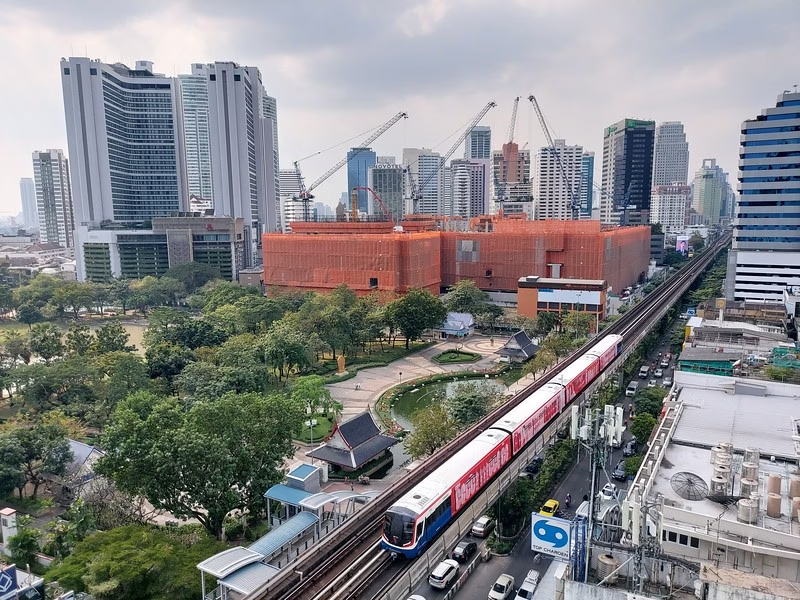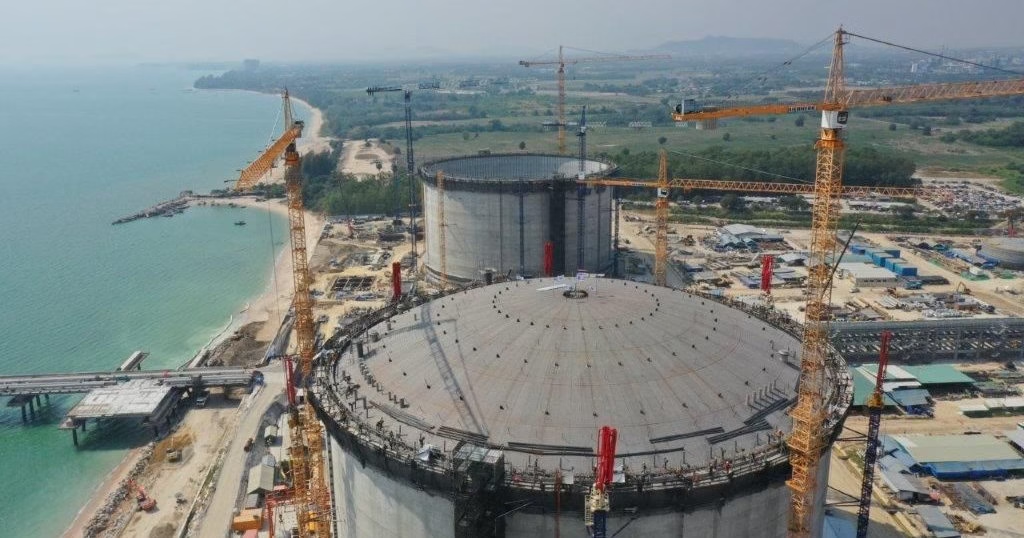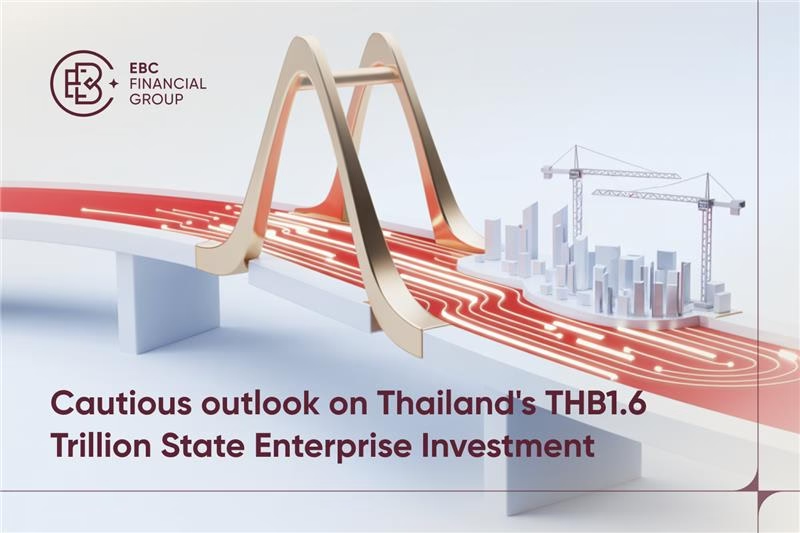BANGKOK – Thailand’s Cabinet approved a THB1.6 trillion investment budget for state-owned enterprises on 15 October, a fiscal commitment officials estimate could add 0.3 per cent to GDP in 2026.
The move comes as the growth outlook has consolidated around 2% to 2.2% growth for 2025, following the Asian Development Bank’s downgrade and the Bank of Thailand’s decision to hold the policy rate at 1.50% whilst signalling it can cut if conditions require. The investment sits alongside a THB44 billion consumer subsidy scheme aimed at supporting growth.
“Thailand faces a difficult mix of US tariff exposure, elevated household leverage and baht strength that weighs on both exports and consumption,” said Samuel Hertz, Head of APC, EBC Financial Group. “The THB1.6 trillion infrastructure commitment, paired with the central bank’s readiness to ease from 1.50%, offers a credible counter-cyclical response, but execution must be swift, and projects must address real capacity constraints.”
The Challenge: Coordinated Policy Amid Mixed Conditions
Second-quarter growth slowed to 2.8% from 3.2% in the first quarter, with private consumption decelerating to 2.1%. Despite three rate cuts this year bringing the policy rate down from 2.5% to 1.5%, average headline inflation has remained at 0.5% for the past 12 months (up to July 2025), and core inflation stands at just 0.9%.
The baht strengthened 5.1% against the US dollar in the second quarter and has remained firm near THB32.5 per dollar, creating a two-speed economy: foreign direct investment rose by 125% to over THB225.5 billion in the first eight months of 2025, yet the strong currency narrows price competitiveness for exporters and hospitality operators competing with regional peers.
“Rate settings are only one lever,” Hertz noted. “Measured easing that aligns with on-time budget disbursement can support cash flow without unsettling currency stability. Thailand’s tradables engine is adjusting to a world of tighter margins. Export’s double-digit growth in Q2 was partly driven by front-loading ahead of tariff deadlines, so sustainable momentum will depend on quality positioning rather than cyclical timing.”

Execution Criteria: What Defines Success
The newly approved THB1.6 trillion state-enterprise investment framework, together with the THB44 billion consumer subsidy scheme, is designed to stabilize demand into early 2026 whilst improving medium-term capacity. Success depends on three factors: disbursement speed, whether spending addresses genuine capacity constraints, and whether it attracts complementary private investment.
“Public investment that removes bottlenecks and raises productivity delivers the strongest multipliers,” Hertz said. “The distinction between productive capacity enhancement and demand stimulus matters. Investments that lower business costs, accelerate operations and improve competitiveness generate lasting returns. Clear project pipelines and timely disbursement will determine how much of the 0.3% uplift is realised.”
What’s at Stake: Sustaining FDI Momentum
How state enterprises deploy this capital will signal to foreign investors whether Thailand offers reliable operating conditions or whether they should shift to Vietnam and other regional competitors. With price advantages eroding as the baht appreciates, competitiveness increasingly depends on operational efficiency, regulatory clarity and the quality of the business environment.
“Businesses that can demonstrate efficiency gains and cost competitiveness protect market position without relying on currency advantages. Regional competition is intensifying, and execution quality differentiates winners from laggards,” Hertz observed.

Strategic Positioning Opportunity for Thailand
State-enterprise investment also offers a strategic positioning opportunity. International analysis, including recent assessments from the World Bank, highlights how capacity-building investments can support Thailand’s goal of becoming a high-income economy. Investments that improve energy efficiency, reduce operational costs and enhance supply-chain resilience create conditions for sustained growth whilst meeting environmental standards increasingly demanded by global investors and supply-chain partners.
“Smart deployment of state-enterprise capital is industrial policy with export benefits,” Hertz concluded. “Transparent project selection, faster execution and measurable outcomes position Thailand for higher-quality expansion. Thailand’s manufacturers can capture premium positioning across key industries like Green technology but how THB1.6 trillion is executed today determines that competitive position tomorrow.”
Disclaimer: This article reflects the observations of EBC Financial Group (SVG) LLC and is for reference only. It is not financial or investment advice. Trading in Contracts for Difference (CFDs) and foreign exchange (FX) involves significant risk of loss, potentially exceeding your initial investment. Before trading, you should carefully consider your financial status, investment objectives, expertise, and risk appetite and consult an independent financial advisor if necessary, as EBC Financial Group and its global entities are not liable for any damages arising from reliance on this information.

###
About EBC Financial Group
Founded in London, EBC Financial Group (EBC) is a global brand known for its expertise in financial brokerage and asset management. Through its regulated entities operating across major financial jurisdictions—including the UK, Australia, the Cayman Islands, Mauritius, and others—EBC enables retail, professional, and institutional investors to access global markets and trading opportunities, including currencies, commodities, CFDs and more.
Trusted by investors in over 100 countries and honoured with global awards, including multiple-year recognition from World Finance, EBC is widely regarded as one of the world’s best brokers with titles including Best Trading Platform and Most Trusted Broker. With its strong regulatory standing and commitment to transparency, EBC has also been consistently ranked among the top brokers—trusted for its ability to deliver secure, innovative, and client-first trading solutions across competitive international markets.
EBC’s subsidiaries are licensed and regulated within their respective jurisdictions. EBC Financial Group (UK) Limited is regulated by the UK’s Financial Conduct Authority (FCA); EBC Financial Group (Cayman) Limited is regulated by the Cayman Islands Monetary Authority (CIMA); EBC Financial Group (Australia) Pty Ltd, and EBC Asset Management Pty Ltd are regulated by Australia’s Securities and Investments Commission (ASIC); EBC Financial (MU) Ltd is authorized and regulated by the Financial Services Commission of Mauritius (FSC).
At the core of EBC is a team of industry veterans with over 40 years of experience in major financial institutions. Having navigated key economic cycles from the Plaza Accord and 2015 Swiss franc crisis to the market upheavals of the COVID-19 pandemic. We foster a culture where integrity, respect, and client asset security are paramount, ensuring that every investor relationship is handled with the utmost seriousness it deserves.
EBC is a proud official foreign exchange partner of FC Barcelona and continues to drive impactful partnerships to empower communities – namely through the UN Foundation’s United to Beat Malaria initiative, Oxford University’s Department of Economics, and a diverse range of partners to champion initiatives in global health, economics, education, and sustainability.
Related News:
Bank of Thailand Holds Rates Steady at 1.5% Amid Trade Storm Clouds














